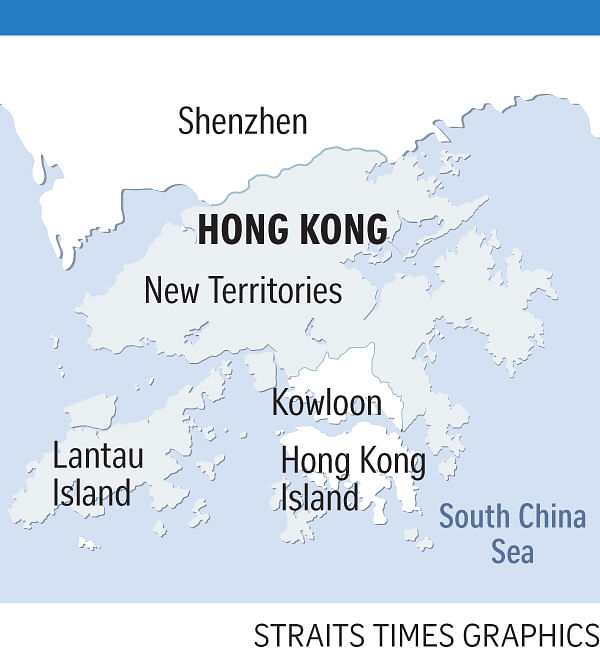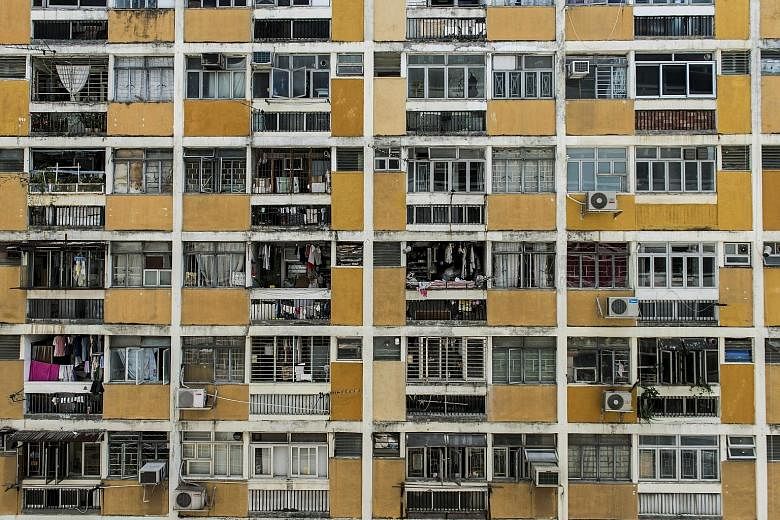The Hong Kong government is not working with "dark forces" on the housing issue in the New Territories, Chief Executive Leung Chun Ying has said in his first public response to accusations of collusion with triads, among others, by newly elected legislator Eddie Chu.
Mr Leung also clarified yesterday that there has been no scaling down of a public housing project in the New Territories and that the target is still to build 17,000 units in the project in Wang Chau.
Separately, a government spokesman said the Development Secretary, and the Transport and Housing Secretary will meet Mr Chu and another new legislator tomorrow on the Wang Chau housing project.

-
What do the terms mean?
-
INDIGENOUS INHABITANTS
The indigenous inhabitants of the New Territories are descendants through the male line of people already settled in the area in 1898, when it was leased to the British.
Indigenous people are given special rights to preserve their traditional customs, which are written into Hong Kong's Basic Law or mini-constitution.
HEUNG YEE KUK
The Heung Yee Kuk was formed in 1926 to look after the interests of the indigenous villagers of the New Territories, and was made a statutory advisory body in 1959. It has 26 seats in the 1,200-member committee that elects the city's chief executive, and a seat in the Legislative Council. It is seen as a powerful pro-establishment political force.
SMALL HOUSE POLICY
The policy allows indigenous males aged 18 and above to apply for permission to build a small house, not more than three storeys high, on their own land at zero premium or on government land with a concessionary premium. Each male is allowed only one application.
Joyce Lim
Mr Chu has accused the government of colluding with triads, businesses and rural leaders to cut the number of public housing units from 17,000 to 4,000 after rural leaders strongly opposed the project, which is on land occupied by "indigenous" villagers. These are Hong Kongers whose ancestors were already settled in the New Territories when the area was leased to the British in 1898 by China.
Mr Chu alleged that the government then shifted its focus to another piece of land occupied by some 100 households of three non-indigenous villages, forcing them to vacate the land before 2018.
Dismissing Mr Chu's allegations, Mr Leung explained that only 4,000 units will be built in the initial phase as land is available for them. The government will not wait for land to be available for all 17,000 units for building to begin.
It is difficult for the government to acquire land for housing in the relatively undeveloped New Territories, said analysts, because of laws that protect the land rights of indigenous inhabitants there.
Under a "small house" policy introduced in 1972, once a male descendant of a recognised indigenous village in the New Territories reaches 18 years old, he can apply for permission to build a house on his own land or government land.
The Heung Yee Kuk, a body representing the interests of indigenous inhabitants, estimates that more than 40,000 of 240,000 male descendants have had their applications approved and some 90,000 are awaiting approval.
Analysts said developers have been quick to jump at the chance to acquire land from the indigenous inhabitants to build private housing. They said Mr Chu's accusations have exposed illegal land deals which have deprived Hong Kong of land for public housing. Last December, 11 indigenous villagers were found guilty of illegally transferring their rights to build small houses to a developer and sentenced to jail terms of between 21/2 and three years.
But rural leader Gary Hau, who chairs the Sheung Shui rural committee, told The Straits Times that he does not see anything wrong with indigenous landowners selling their land to developers instead of to the government. "They have the right to sell to whoever offers the highest price," said Mr Hau, a committee member of the Heung Yee Kuk.
After his victory in the Sept 4 Legislative Council elections, Mr Chu, who has received death threats for his land rights campaign, vowed to challenge and reform the Heung Yee Kuk. The powerful body is widely accused of corruption and anti-environmental practices.
On Monday, after leading 15 rural leaders in a meeting with the Development Minister, Heung Yee Kuk chief Kenneth Lau told reporters that village chiefs are not behind the death threats against Mr Chu.


